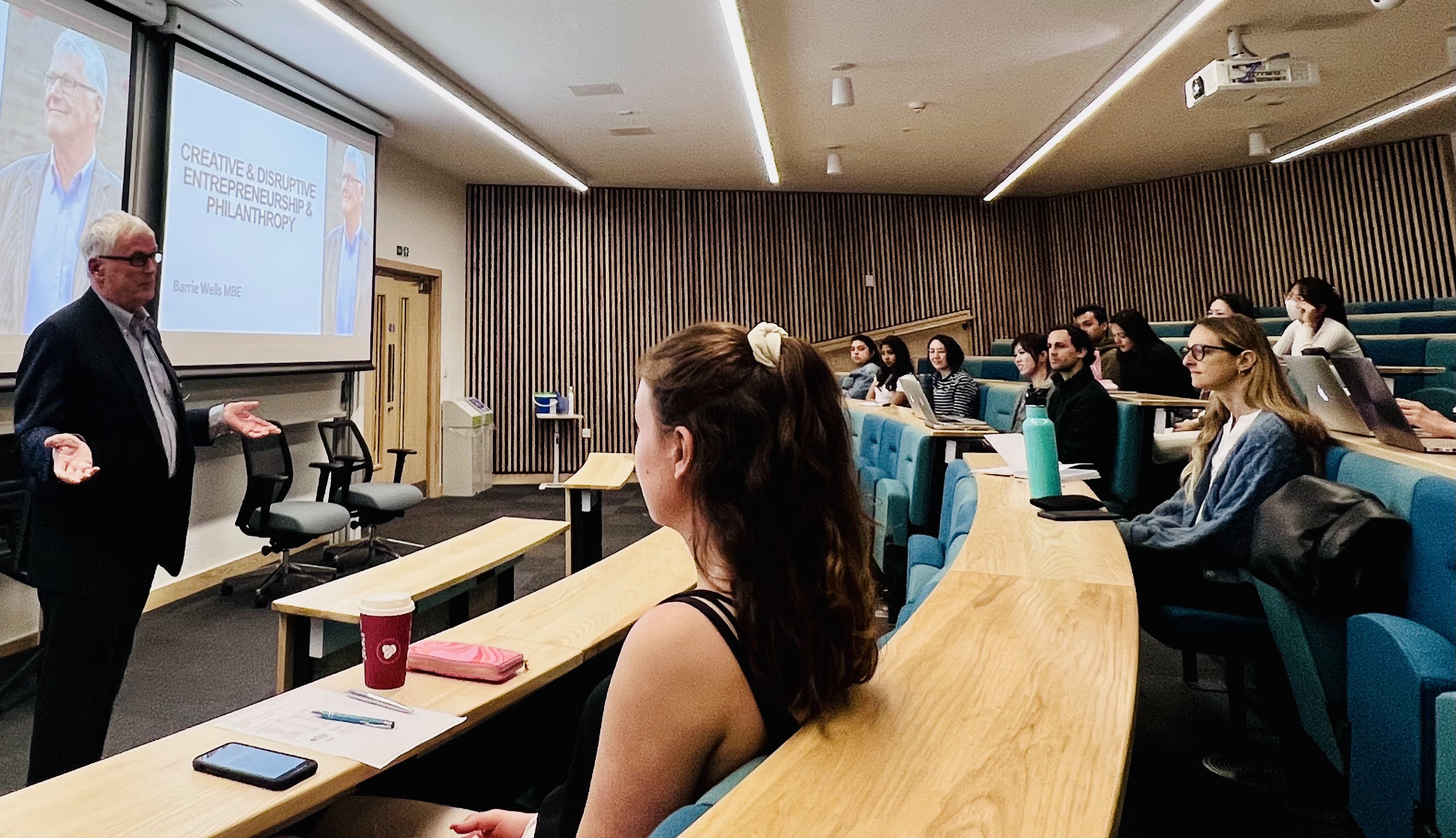Experienced leaders from across business and industry delivered first-hand insights into the state of the workplace post-Covid to aspiring future leaders at Lancaster University Management School (LUMS).
Students on the MSc Digital Business, Innovation & Management (DBIM) programme benefitted from the knowledge of five members of the LUMS Leaders in Residence Network.
Students from across the world, from Europe to Chile and China, were joined in the classroom by Catherine Betley, Managing Director at Professional Help Ltd; Jackie Arnold MBE, Non-Executive with Cumberland Building Society, and former Head of Strategy with BAE Systems; Peter Anstiss, a board-level consultant and former Business Development Director at BAE Systems; and Jacqui Jackson, Partner at Thomas Jardine and Co. Peter Cobley, Director at Found Us, joined the session remotely, as did a number of DBIM students.

The group discussed the themes of start-up, consultancy, and research within organisations, with the Leaders in Residence making presentations, taking part in panel discussions, and exploring issues alongside the students in group discussions.
Dr Uzair Shah, DBIM Programme Director, said: "This was an excellent hybrid learning event, and we received fantastic feedback both from the students and Leaders in Residence. Everyone gained a lot from it, and found the discussions thought-provoking and insightful.
"The Leaders in Residence are a wonderful resource here in LUMS. They have years of experience working at the top of their fields, and they have their fingers on the pulse when it comes to the state of work today and the patterns we can expect to see in the future.
"They were able to advise our students on key employability skills they will need for a successful career, school-to-work transition, the changing nature of work, responsibility to issues of societal inequalities and environmental injustice, and other broader issues, and how they could make a difference to an organisation.
"We hope to continue collaborating with the Leaders in Residence, providing valuable experiences both for them and for our students."
Two other LUMS Leaders in Residence delivered separate guest lectures to DBIM students.
Barrie Wells MBE spoke on Insights into organizational problem-solving, creativity, resilience and business-society relationship; a perspective of a Successful Financial Services Entrepreneur.

Barrie (pictured above) is an experienced entrepreneur and founder of the Barrie Wells Trust, which provides VIP experiences for seriously ill children. He also has a long record of philanthropy, including supporting future Olympians Jessica Ennis-Hill and Katarina Johnson-Thompson. He shared insights from his career, and his perspective on the relationship between business and societal challenges.
Students were able to engage in a question-and-answer session following the lecture, and Dr Shah said: "The conversation between Barrie and the students was free-flowing. The students very much enjoyed the opportunity to engage with him and gained a lot from his insights."
Steve Beswick, Business Development Director at Microsoft, offered insights into the challenges of launching and establishing a new product/service within a global organisation. The session focused on inter-cultural dynamics and their influence on professional work within a global IT organisation.






